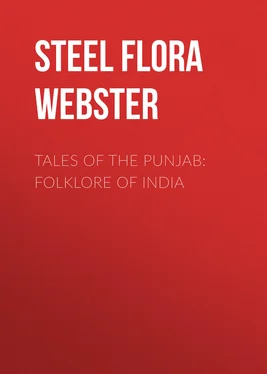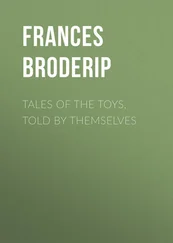Flora Steel - Tales of the Punjab - Folklore of India
Здесь есть возможность читать онлайн «Flora Steel - Tales of the Punjab - Folklore of India» — ознакомительный отрывок электронной книги совершенно бесплатно, а после прочтения отрывка купить полную версию. В некоторых случаях можно слушать аудио, скачать через торрент в формате fb2 и присутствует краткое содержание. Жанр: Сказка, Старинная литература, foreign_antique, foreign_prose, foreign_children, на английском языке. Описание произведения, (предисловие) а так же отзывы посетителей доступны на портале библиотеки ЛибКат.
- Название:Tales of the Punjab: Folklore of India
- Автор:
- Жанр:
- Год:неизвестен
- ISBN:нет данных
- Рейтинг книги:5 / 5. Голосов: 1
-
Избранное:Добавить в избранное
- Отзывы:
-
Ваша оценка:
- 100
- 1
- 2
- 3
- 4
- 5
Tales of the Punjab: Folklore of India: краткое содержание, описание и аннотация
Предлагаем к чтению аннотацию, описание, краткое содержание или предисловие (зависит от того, что написал сам автор книги «Tales of the Punjab: Folklore of India»). Если вы не нашли необходимую информацию о книге — напишите в комментариях, мы постараемся отыскать её.
Tales of the Punjab: Folklore of India — читать онлайн ознакомительный отрывок
Ниже представлен текст книги, разбитый по страницам. Система сохранения места последней прочитанной страницы, позволяет с удобством читать онлайн бесплатно книгу «Tales of the Punjab: Folklore of India», без необходимости каждый раз заново искать на чём Вы остановились. Поставьте закладку, и сможете в любой момент перейти на страницу, на которой закончили чтение.
Интервал:
Закладка:
By this time the servants, having satisfied their hunger, began to reflect on what they had done, and becoming alarmed at the consequences, arrived at the conclusion it would be wisest to make their escape whilst they could. So, leaving the bride in her palanquin, they took to their heels in various directions.
The Rat, being as it were left in possession, advanced to the palanquin, and drawing aside the curtain, with the sweetest of voices and best of bows begged the bride to descend. She hardly knew whether to laugh or to cry, but as any company, even a Rat's, was better than being quite alone in the wilderness, she did as she was bidden, and followed the lead of her guide, who set off as fast as he could for his hole.
As he trotted along beside the lovely young bride, who, by her rich dress and glittering jewels, seemed to be some king's daughter, he kept saying to himself, 'How clever I am! What bargains I do make, to be sure!'
When they arrived at his hole, the Rat stepped forward with the greatest politeness, and said, 'Welcome, madam, to my humble abode! Pray step in, or if you will allow me, and as the passage is somewhat dark, I will show you the way.'
[Illustration: The rat at the palanquin]
Whereupon he ran in first, but after a time, finding the bride did not follow, he put his nose out again, saying testily, 'Well, madam, why don't you follow? Don't you know it's rude to keep your husband waiting?'
'My good sir,' laughed the handsome young bride, 'I can't squeeze into that little hole!'
The Rat coughed; then after a moment's thought he replied, 'There is some truth in your remark—you are overgrown, and I suppose I shall have to build you a thatch somewhere. For to-night you can rest under that wild plum-tree.'
'But I am so hungry!' said the bride ruefully.
'Dear, dear! everybody seems hungry to-day!' returned the Rat pettishly; 'however, that's easily settled—I'll fetch you some supper in a trice.'
So he ran into his hole, returning immediately with an ear of millet and a dry pea.
'There!' said he, triumphantly, 'isn't that a fine meal?'
'I can't eat that!' whimpered the bride; 'it isn't a mouthful; and I want rice pottage, and cakes, and sweet eggs, and sugar-drops. I shall die if I don't get them!'
'Oh dear me!' cried the Rat in a rage, 'what a nuisance a bride is, to be sure! Why don't you eat the wild plums?'
'I can't live on wild plums!' retorted the weeping bride; 'nobody could; besides, they are only half ripe, and I can't reach them.'
'Rubbish!' cried the Rat; 'ripe or unripe, they must do you for to-night, and to-morrow you can gather a basketful, sell them in the city, and buy sugar-drops and sweet eggs to your heart's content!'
So the next morning the Rat climbed up into the plum-tree, and nibbled away at the stalks till the fruit fell down into the bride's veil. Then, unripe as they were, she carried them into the city, calling out through the streets—
'Green plums I sell! green plums I sell!
Princess am I, Rat's bride as well!'
As she passed by the palace, her mother the Queen heard her voice, and, running out, recognised her daughter. Great were the rejoicings, for every one thought the poor bride had been eaten by wild beasts. In the midst of the feasting and merriment, the Rat, who had followed the Princess at a distance, and had become alarmed at her long absence, arrived at the door, against which he beat with a big knobby stick, calling out fiercely, 'Give me my wife! give me my wife! She is mine by fair bargain. I gave a stick and I got a loaf; I gave a loaf and I got a pipkin; I gave a pipkin and I got a buffalo; I gave a buffalo and I got a bride. Give me my wife! give me my wife!'
'La! son-in-law! what a fuss you do make!' said the wily old Queen, through the door, 'and all about nothing! Who wants to run away with your wife? On the contrary, we are proud to see you, and I only keep you waiting at the door till we can spread the carpets, and receive you in style.'
Hearing this, the Rat was mollified, and waited patiently outside whilst the cunning old Queen prepared for his reception, which she did by cutting a hole in the very middle of a stool, putting a red-hot stone underneath, covering it over with a stew-pan-lid, and then spreading a beautiful embroidered cloth over all.
Then she went to the door, and receiving the Rat with the greatest respect, led him to the stool, praying him to be seated.
'Dear! dear! how clever I am! What bargains I do make, to be sure!' said he to himself as he climbed on to the stool. 'Here I am, son-in-law to a real live Queen! What will the neighbours say?'
At first he sat down on the edge of the stool, but even there it was warm, and after a while he began to fidget, saying, 'Dear me, mother-in-law! how hot your house is! Everything I touch seems burning!'
'You are out of the wind there, my son,' replied the cunning old Queen; 'sit more in the middle of the stool, and then you will feel the breeze and get cooler.'
But he didn't! for the stewpan-lid by this time had become so hot, that the Rat fairly frizzled when he sat down on it; and it was not until he had left all his tail, half his hair, and a large piece of his skin behind him, that he managed to escape, howling with pain, and vowing that never, never, never again would he make a bargain!
THE FAITHFUL PRINCE
Long ago there lived a King who had an only son, by name Prince Bahrâmgor, who was as splendid as the noonday sun, and as beautiful as the midnight moon. Now one day the Prince went a-hunting, and he hunted to the north, but found no game; he hunted to the south, yet no quarry arose; he hunted to the east, and still found nothing. Then he turned towards the setting sun, when suddenly from a thicket flashed a golden deer. Burnished gold were its hoofs and horns, rich gold its body. Dazzled by the wonderful sight, the astonished Prince bade his retainers form a circle round the beautiful strange creature, and so gradually enclose and secure it.
'Remember,' said the Prince, 'I hold him towards whom the deer may run to be responsible for its escape, or capture.'
Closer and closer drew the glittering circle of horsemen, while in the centre stood the golden deer, until, with marvellous speed, it fled straight towards the Prince, But he was swifter still, and caught it by the golden horns. Then the creature found human voice, and cried, 'Let me go, oh! Prince Bahrâmgor and I will give you countless treasures!'
But the Prince laughed, saying, 'Not so! I have gold and jewels galore, but never a golden deer.'
'Let me go,' pleaded the deer, 'and I will give you more than treasures!'
'And what may that be?' asked the Prince, still laughing.
'I will give you a ride on my back such as never mortal man rode before,' replied the deer.
'Done!' cried the gay Prince, vaulting lightly to the deer's back; and immediately, like a bird from a thicket, the strange glittering creature rose through the air till it was lost to sight. For seven days and seven nights it carried the Prince over all the world, so that he could see everything like a picture passing below, and on the evening of the seventh day it touched the earth once more, and instantly vanished. Prince Bahrâmgor rubbed his eyes in bewilderment, for he had never been in such a strange country before. Everything seemed new and unfamiliar. He wandered about for some time looking for the trace of a house or a footprint, when suddenly from the ground at his feet popped a wee old man.
'How did you come here? and what are you looking for, my son?' quoth he politely.
So Prince Bahrâmgor told him how he had ridden thither on a golden deer, which had disappeared, and how he was now quite lost and bewildered in this strange country.
Читать дальшеИнтервал:
Закладка:
Похожие книги на «Tales of the Punjab: Folklore of India»
Представляем Вашему вниманию похожие книги на «Tales of the Punjab: Folklore of India» списком для выбора. Мы отобрали схожую по названию и смыслу литературу в надежде предоставить читателям больше вариантов отыскать новые, интересные, ещё непрочитанные произведения.
Обсуждение, отзывы о книге «Tales of the Punjab: Folklore of India» и просто собственные мнения читателей. Оставьте ваши комментарии, напишите, что Вы думаете о произведении, его смысле или главных героях. Укажите что конкретно понравилось, а что нет, и почему Вы так считаете.












